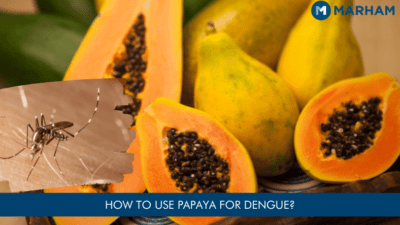Dengue fever is spread by the female mosquito Aedes aegypti carrying Flavivirus. The persons who have been sick with this dengue fever could be reinfected because this life-threatening virus carries four diverse serotypes. It has been stated according to recent WHO resources in September, more than 85,488 dengue cases with 234 deaths were reported in the hospitals. It is going to be an alarming condition with the passage of time.
According to the research published in the Journal of Applied Pharmaceutical Science, Presently the newly accessible dengue vaccine has not been administered to the general public. Usually, oral and intravenous fluids administration and antipyretics are available to control the severity of fever and circulation of blood.
Book your Dengue NS1 Antigen Test Online
The major apparent symptoms that are developed in the patients are nausea, headache, and musculoskeletal or joint pain. Proper disease control management is necessary in order to control the spreading of dengue symptoms among the population. If it is left untreated, it leads to the risk of developing vessel leakage and blood plasma which results in lower platelet count.
As stated by Dharmarathna in the Journal of Applied Pharmaceutical Science, for centuries Carica papaya leaves extracted from papaya trees have been used in folk medicine to fight dengue fever, because it is considered to be an active, harmless and inexpensive remedy.
An open randomized trial was conducted in order to examine the effect of C. papaya leaf juice to raise the platelet count in patients with Dengue Fever and Dengue Haemorrhagic Fever. A total of 229 patients were recruited (112 and 117 patient intervention and control groups, respectively).
The experimental subject was given fresh juice from 50 grams of C. papaya leaves once a day, 15 minutes after breakfast for 3 consecutive days. The findings showed a significant increase. Platelet count in the intervention group after 40 hours and 48 hours.
How many days does dengue fever last?
In a study conducted in Karachi, according to Siddique published in the Journal of Applied Pharmaceutical Science, 50 mL of extract of papaya leaves was given. Taxi drivers were diagnosed with Dengue Fever twice a day for 5 days; still, an increase in platelet count and white blood cells was also shown.
No serious scientific research provides evidence that papaya juice can actually cure dengue fever. It is worth noting that some studies have shown that papaya leaf juice did not contribute to an increase in the number of platelets in patients with Dengue fever.
But using it as a treatment is still people’s choice. There is no exact medicine for dengue, to fight dengue fever. In fact, there are no side effects in patients who are drinking this juice. It can be said that it is safe because it has no effect on major organs such as the liver, kidneys, and heart.

